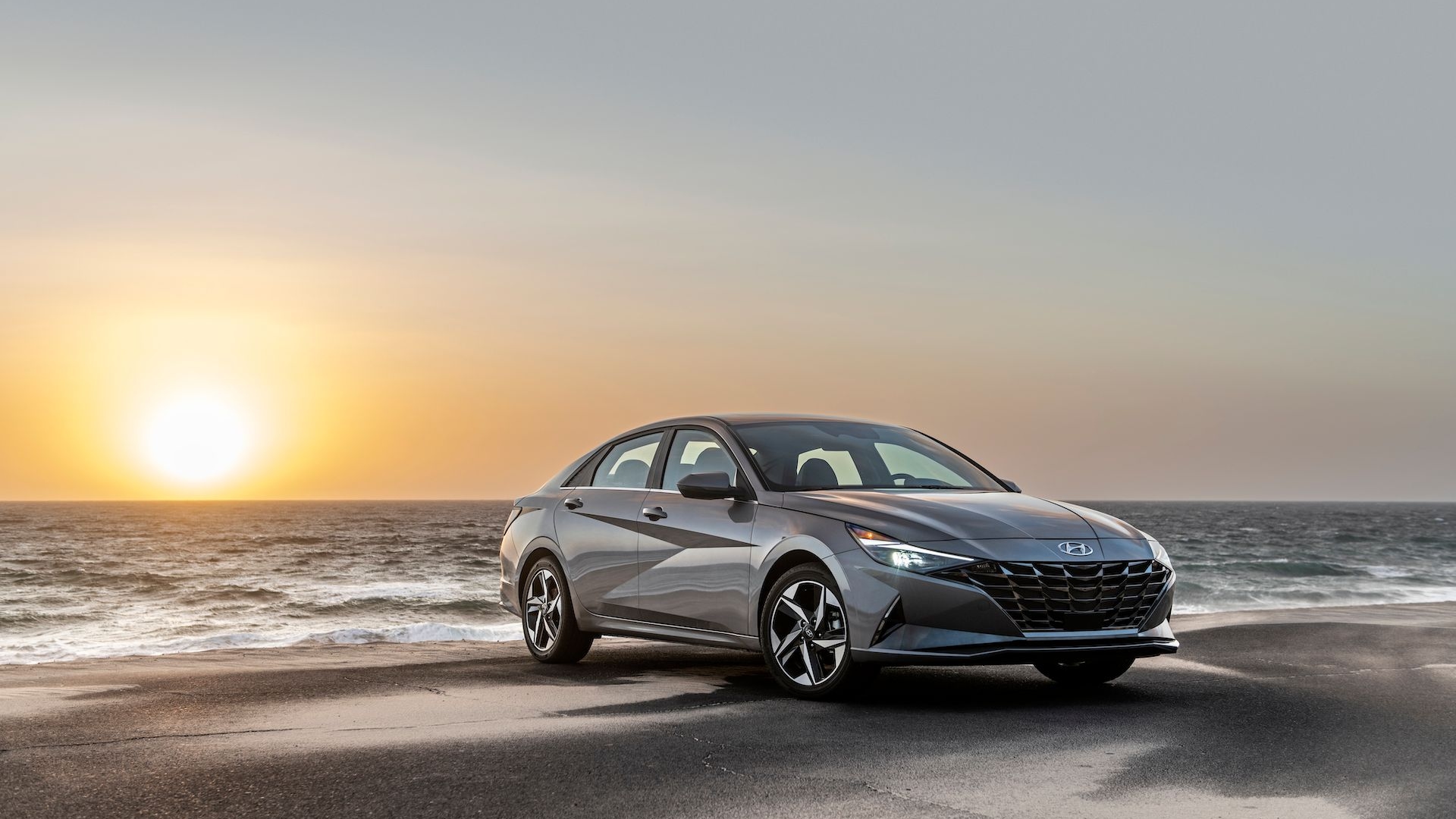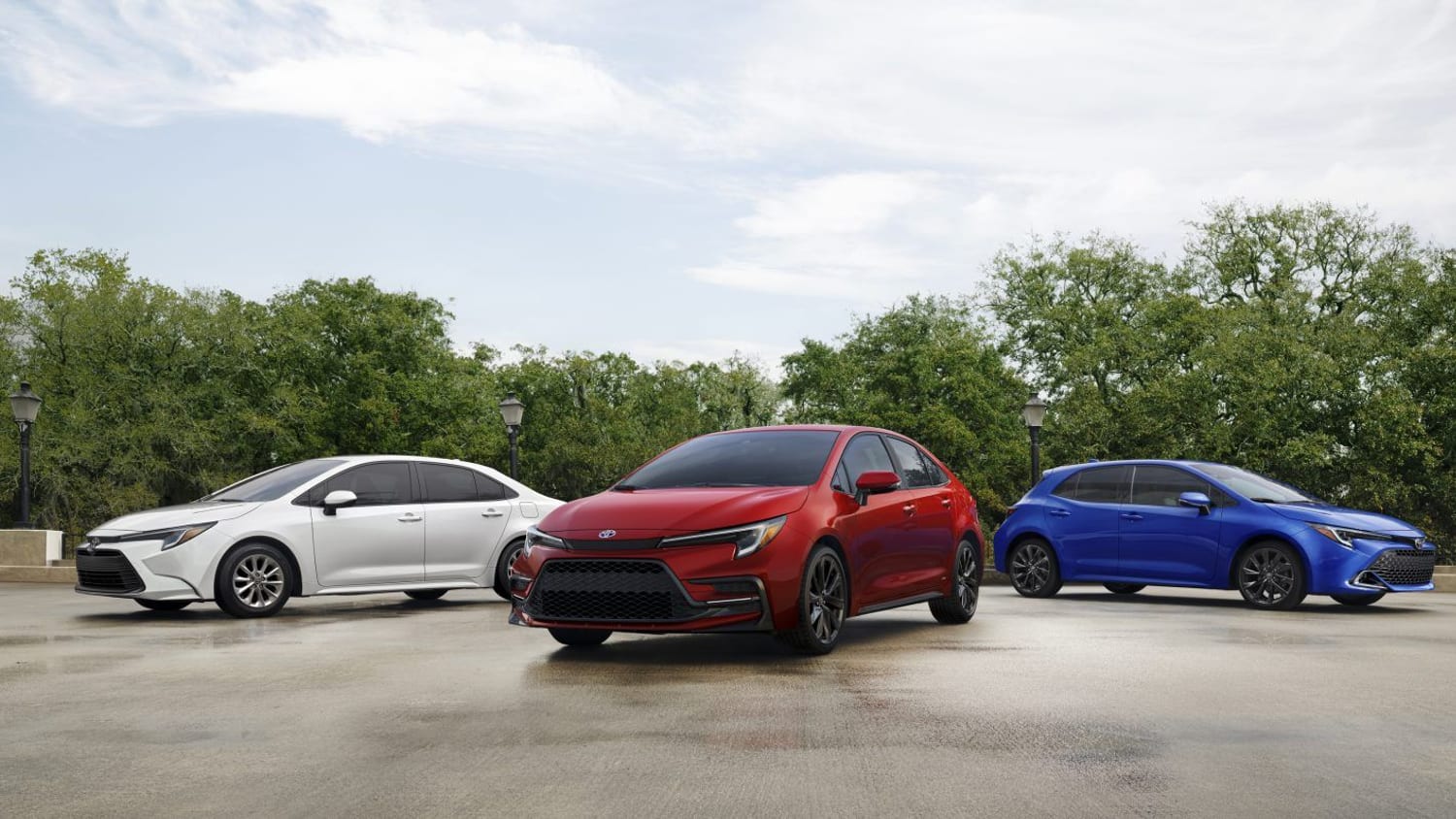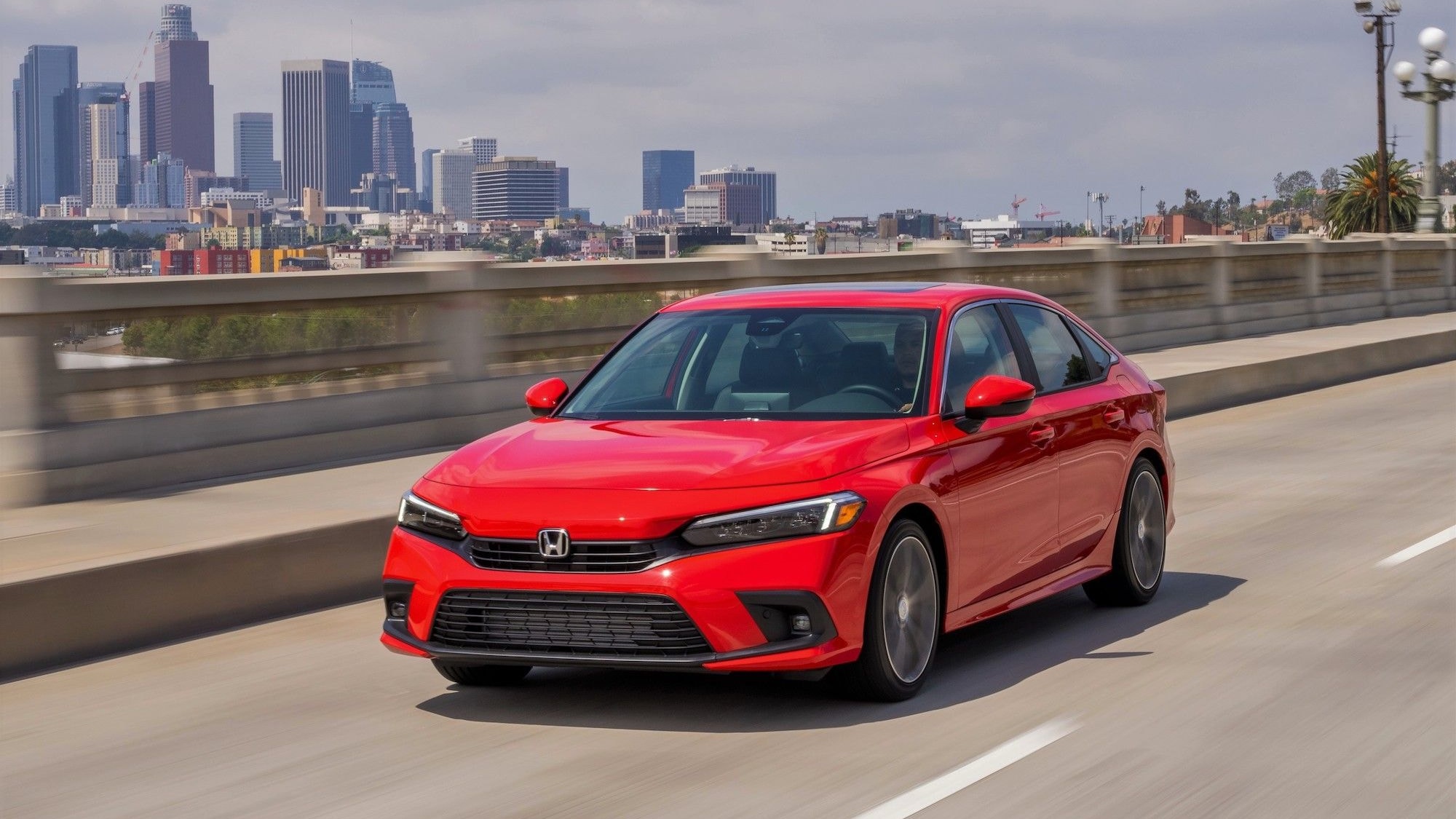At the Seoul Motor Show today, Hyundai unveiled the world's first hybrid electric vehicle to be powered by a liquefied petroleum injected (LPI) engine. The Elantra LPI Hybrid (standard model pictured) is also the world's first hybrid vehicle to run on lithium-ion polymer batteries.
This type of battery is claimed to feature a higher energy density, lower manufacturing cost, and better reliability than regular lithium-ion batteries, which most other carmakers are planning to use, and has been developed with LG Chem.
Powered by a fuel-injected LPG Gamma 1.6-litre engine and a 20hp (15kW) electric motor routed through a continuously variable transmission, the Elantra LPI Hybrid emits 103g of CO2/km and is expected to be able to recoup the extra price premium for the new technology in just two years through fuel savings (based on current LPG prices in South Korea). Fuel economy is rated at 40mpg (5.8L/100km), which is a 41% improvement over the regular 1.6L petrol Elantra.
Hyundai plans to launch the car in South Korea this July, and is expecting to launch its first petrol-electric hybrid in the U.S. next year in the Sonata sedan. Also planned for this week’s Seoul event is the unveiling of the Blue-Will plug-in hybrid concept car, which Hyundai’s U.S. chief has hinted at being a possibility for the U.S. market as well.


